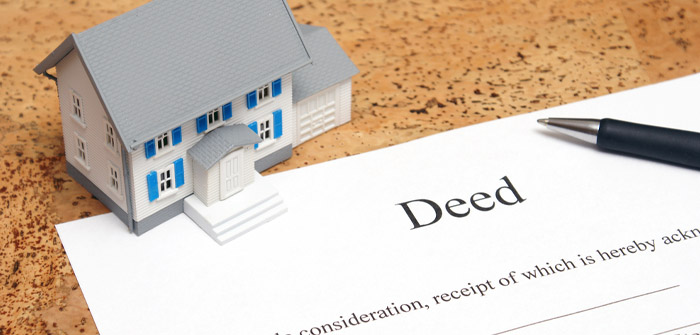Why a Lawyer Should Do Your Conveyancing
Conveyancing is an integral part of any property transaction, whether you’re purchasing or selling a house. It involves the legal transfer of both home and land ownership deeds.
That is where a lawyer comes in handy. As licensed conveyancers, they have the expertise to complete property conveyancing melbourne processes and provide legal advice.
Saves You Time
Purchasing and selling property can be a time-consuming endeavor, especially when you have other legal matters to address as well. This makes the process even more complex and takes up much of your valuable energy.
That is why it is best to hire a lawyer for all of your conveyancing needs. They will save you valuable time and guarantee everything runs seamlessly.
Your conveyancer’s primary responsibility is to guarantee the transfer of title deeds for your property from its previous owner to a new one. They also conduct local authority searches in relation to the property in order to detect any pending issues which could affect its value in the long run.
These can include proposals from government departments, illegal building work and unpaid rates and taxes. Neglecting to address these matters could make the process unnecessarily lengthy and costlier in the end.
Saves You Money
Purchasing or selling a home is one of the largest financial decisions you will ever make, so it’s essential that everything goes smoothly. Your conveyancer is there to make sure everything transfers seamlessly and there are no unexpected issues during closing.
Your conveyancer can assist with the legal process and perform all necessary local authority searches, land registration fees and any other relevant checks that may affect your purchase.
Lawyers are professional experts whose insight can be invaluable in guiding you through a property transaction. Not only that, but they’re also creative problem solvers and capable of finding practical solutions when problems or unique situations arise.
Saves You from Mistakes
In the legal realm, there are plenty of potential pitfalls. But having a reliable lawyer on board can save you both time and money in the long run.
For instance, if a mishap causes you to receive an incorrect bill, your attorney should correct it promptly to avoid a financial hit. Some lawyers even provide discounts as a token of gratitude when errors are discovered in order to show their clients their appreciation for their business.
A great lawyer is capable of giving sound advice at the appropriate time. Additionally, they possess creative problem-solving skills and the capacity to find creative solutions to seemingly insurmountable difficulties.
Save yourself a potential headache by writing everything down and keeping your paperwork organized. Not only will this save time and money, but it makes your lawyer’s job much simpler. If you are uncertain of your legal abilities, hiring a conveyancing solicitor could be the best course of action for you.
Saves You from Stress
Furthermore, a lawyer can conduct property searches on your behalf. This helps identify any liens, mortgages or other legal issues that could affect the future ownership of the property.
A trustworthy conveyancer will also explain legal jargon in plain English so you understand what’s going on. Doing this can prevent mistakes and signing a contract that you aren’t content with.
A great conveyancer will make you feel valued and understand the complexity of your transaction. They understand and respect the stress and anxiety that can accompany buying or selling a home.
Transfer of title
Transferring title is a legal procedure that involves legal documents that demonstrate ownership changes. These records can be used as evidence in support of any claim involving property rights, such as when someone purchases or sells their home.
If someone is selling their car, they should go to the motor vehicle department and obtain title transfer. This transfer should be done promptly following the sale.
In some states, you can transfer titles between states. You will need to fill out an application and pay fees and taxes for each state you wish to transfer the title too.
Transfer of mortgage
Transferring a mortgage, commonly referred to as discharge of mortgage or remortgaging, is an important conveyancing activity. It involves selling the property to its new owner and obtaining a new mortgage.
Before any transfer can take place, the mortgage lender must give their approval. This ensures that the property remains within their terms and conditions so they can be repaid.
In most cases, if you wish to gift or transfer equity from a property to another party, you must first obtain a Mortgage Decision in Principle (DIP) from the lender before beginning legal proceedings.
Once the sale of your property has been registered at Land Registry, you must pay Stamp Duty Land Tax on its value according to applicable bands.
Transfer of fixtures and fittings
Fittings, on the other hand, are items that can be removed with ease. This could include curtains, free-standing white goods and paintings.
Therefore, it is essential that any fixture or fitting included in a property sale be fully agreed to in writing and confirmed on the TA 10 Fixtures and Fittings form. Doing this will prevent any misunderstanding or disputes at a later stage.
Purchasing a property is one of the biggest decisions you’ll ever make, so it’s essential that you make an informed decision about what should and should not be included in your purchase. Your conveyancer can help prevent costly legal disputes down the line by confirming all information provided is true and accurate.
Transfer of legal title
Transferring legal title is the process by which one party cedes ownership rights to another. This can be accomplished through the sale of the property, exchange of shares in a business, gift or inheritance.
To transfer legal title, it must be recorded with the appropriate state agency and include a detailed description of the property with no title defects. It also needs to be properly written, signed and dated for accuracy.
When it comes to land titles, there are various deeds that can be used. General warranties, special warranties and quitclaim deeds can all be useful in transferring ownership with the assurance that it’s free from encumbrances such as liens and mortgages which could interfere with possession.






